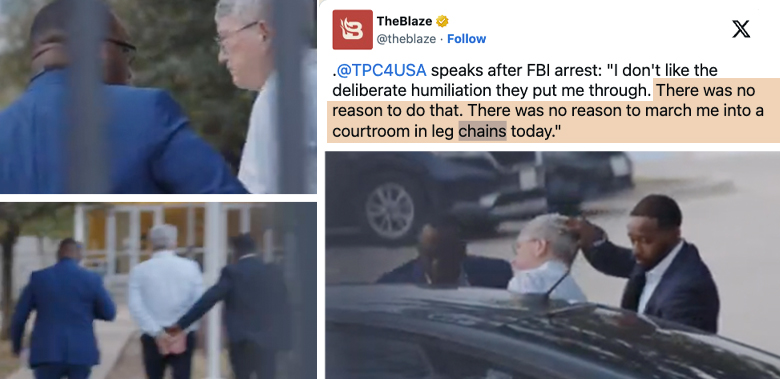The safest thing to do — politically, anyway — is plant yourself in a corner and sit still. But people tend to want to move around, live, do their jobs.
Steve Baker, reporter for Blaze Media, recently was forced to “self-surrender” to federal authorities for committing initially unspecified crimes.
Was doing his job the crime?
His fed-embarrassing journalism about the January 6 “insurrection” and the way many people have been incarcerated for years for little more than trespassing — was that the crime?
As video of the not-always- innocuous but often-innocuous goings-on of January 6 has been released, Baker has been among those examining the record and noting apparent contradictions in the official story.
When he turned himself in to the FBI last Friday, he was facing charges that the FBI had flatly refused to divulge. But now the Blaze reports that, three years after January 6 “insurrection,” Baker is being charged for things like “entering [restricted areas] without lawful authority” or “parading … in a capitol building.”
Trespassing. Arrested for trespassing three years later?
Or arrested for his reporting on the events of January 6 and its sequels over the course of those three years?
Before Baker turned himself in, the FBI did give him the information that he should arrive in shorts and flip-flops. So that, Glenn Beck writes, “it would be easier for them to put on the orange jumpsuit and ankle irons. Suffice it to say, he wore a suit and tie.”
This is Common Sense. I’m Paul Jacob.
—
See all recent commentary
(simplified and organized)



